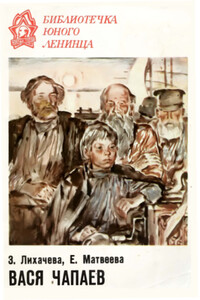My first impression of Roger Pickering was of nervous tension. He stood on the doorstep, hiding behind his fringe of light brown hair, eyes cast anywhere but at me.
“Sal Kilkenny?” He managed to get my name out.
“Yes, Mr Pickering. Please come in.”
I led him along the hall and downstairs to my office in the cellar. With the self-absorption of the painfully shy, he made no small talk, no comment on our location, and politely refused coffee.
I had told him about the Missing Person’s Helpline, when he had first rung me. He’d tried that, he said, a year ago when it became obvious his mother wouldn’t get better. Nothing had come of it. No word. Just a resounding silence. Like the silence that had echoed through their home for the past twenty three years. Since the day his sister left.
“We never talk about it,” he said. “Like it never happened.”
“Do you know whether she ever got in touch?”
He shook his head, shrugged. “I don’t think so but I’ve no idea really. Something happened but they’d never talk about it, wouldn’t even mention her name.” His forehead creased as he fished for accurate recollections. “I think at first they told me she’d gone to university but later they said she’d left her course. They said she wouldn’t be coming back. She was a disgrace. I remember my mother using those words, a disgrace. But I never knew why.”
“How old were you?”
“Eight,” he blinked rapidly, “my parents were always strict. They were getting on in years when they had Jennifer and when I arrived, ten years later, they were even older. They never…” he searched for the right words, “…they didn’t talk about things. Everything was proper and if it wasn’t then you certainly didn’t dwell on it. And you didn’t tell the children. Old fashioned really. Stiff upper lip and all that,” he smiled.
“Have you asked them? Recently?”
He perched on the edge of his seat as we talked, his face never still. He had a pleasant face, boyish, though he was in his early thirties by my reckoning, hazel eyes with dark lashes, pale skin which emphasised the red of his lips.
“Last year,” he glanced up at me from beneath his fringe, “well – I tried. It was awful. It was my mother I asked. My father’s dead now. She, she just acted like I hadn’t spoken. Completely ignored me. And when I repeated myself, asked her to tell me why Jennifer had never been home then she got really angry. She lost her temper and started talking about how I’d promised never to mention that name in this house again and had I no respect for her feelings and men she started crying. She never cries,” his face told me how uncomfortable he’d been. “I had to leave it alone.”
“So, what does she think of you hiring a private detective to find your sister?”
“She doesn’t know”
Heigh ho. “She may have to.”
His eyes widened.
“It might be impossible to trace your sister without talking to your mother. She’s going to have a lot more information about where Jennifer may have gone, who her friends were, all that. Missing persons can be very hard to trace without good leads. Where would I start? Do you know what university she went to?”
“No.”
“Can you remember who her friends were?”
“There was one I remember, Lisa, she lived at the old vicarage. The others…there was a Carol, I think.”
“But your mother would know where she lived and what her surname was, wouldn’t she?”
“I don’t want you to talk to her,” assertive in spite of his nervousness.
“Sometimes people will open up more easily to a stranger, you know. They’re not losing face in the same way, there’s no shared history of how things have to be.”
“No, not yet. If it becomes impossible, like you say then maybe…but can’t you just try first? I’m sure there are some things I can find out – names of people you could talk to, that sort of thing.”
“OK. You see, I really do need an idea of whereabouts to look – I can try electoral rolls for example but do I start in Manchester or London or Edinburgh? Without an area to focus on it’s a waste of time, to be honest.”
“But if I got you the names of her old friends, people who might know where she could have gone…”
“Yes, that would help. However from what you’ve said, it sounds as though your mother wouldn’t want to see Jennifer even if we did trace her.”
“I know,” he stared at the floor, “but it’s not just that. It’s true, I think Jennifer has a right to know that Mother’s dying and she should be able to try and make contact if she wants, to write or call, before it’s too late. But there’s the house as well, you see. Jennifer will be entitled to half of it, and there’s money left from Father’s estate.”
“You want her to get her share of the inheritance?” Not all siblings were so generous.













